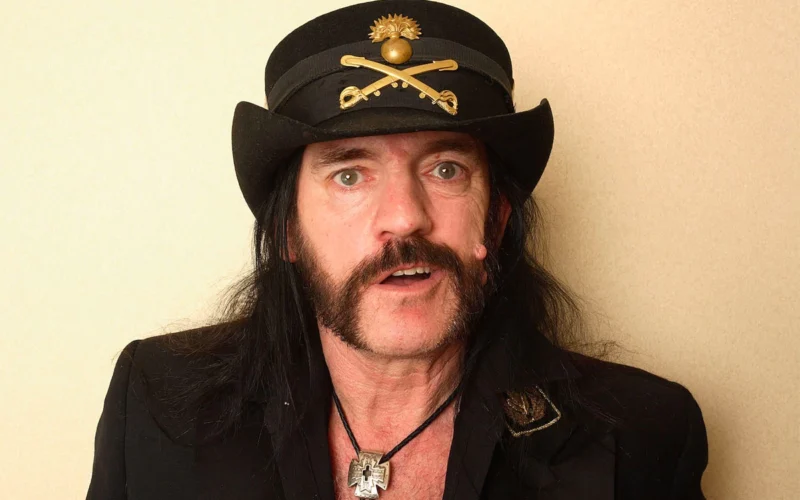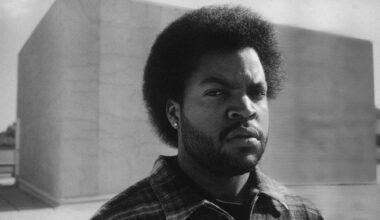It’s no surprise that Motörhead are largely remembered for one song in particular. While the hard rock/heavy metal pioneers have enough anthems to fill an entire set, including classics like ‘Overkill’, ‘Hellraiser’ and ‘Killed By Death’, every single concert had to include ‘Ace of Spades’. The 1980 single instantly solidified everything that made Motörhead unique, from their breakneck tempos to their extreme overdrive and born-to-lose ethos.
“‘Ace of Spades’ is unbeatable, apparently, but I never knew it was such a good song,” Lemmy admitted to Mojo in 2011. “Writing it was just a word exercise on gambling, all the clichés. I’m glad we got famous for that rather than for some turkey, but I sang ‘the eight of spades’ for two years and nobody noticed.”
Although it would forever be the anthemic centrepiece of Motörhead’s entire existence, ‘Ace of Spades’ wasn’t a fully accurate portrait of Lemmy or his band of speed freaks. Whether he was on the road or relaxing at the Rainbow Bar just outside his apartment in Los Angeles, Lemmy was usually a fixture of casinos and gambling machines. But he wasn’t playing poker – Lemmy was more of a slot machine kind of guy.
“I used gambling metaphors, mostly cards and dice – when it comes to that sort of thing, I’m more into the one-arm bandits actually, but you can’t really sing about spinning fruit, and the wheels coming down,” Lemmy wrote in his autobiography White Line Fever. “Most of the song’s just poker, really – ‘I know you’ve got to see me, read ’em and weep, Dead man’s hand again, aces and eights’ – that was Wild Bill Hickock’s hand when he got shot”.
Part of the reason ‘Ace of Spades’ popped immediately was that the band explored producer Vic Maile behind the mixing board. Whereas the members of Motörhead were aggressive and boisterous, Maile was low-key and dry. Maile’s attitude was take-no-prisoners, and as a result, Motörhead were more organised and accessible than they had ever been on record.
“He didn’t drink, he didn’t smoke, and he was very delicate because he was diabetic,” guitarist ‘Fast’ Eddie Clarke told Uncut. “He had to have his Ryvita (a rye-based crispbread) at six o’clock. We couldn’t get heavy with him, couldn’t fucking shake him, you know what I mean? He might die! So we had to listen to him.”
“If it was anyone else, we’d have told him to go and fuck off and die or tied ’em to the car and run around the car park with them,” Clarke said about Maile’s suggestion to use a cowbell for the track. “But because it was Vic we said, ‘Oh, all right Vic…’ So we’re there with these blocks of wood banging them together. He put loads of reverb on and that’s the sound you hear – ‘dang dang dang dang dang dang CLACK.’ We didn’t want to upset him in case we killed him.”
White Maile was able to flesh out parts of the Motörhead sound, other elements were off-limits. Lemmy’s signature bass sound was high in gain and low in actual bass, something that Clarke struggled with early on. “There was no bottom end! Especially in those days, a bottom end on the bass guitar was how it was played. Well, we didn’t have any,” Clarke remembered. “So that made life very, very tricky. Until we got the hang of it, which we finally did on Ace Of Spades, but only then because the producer, Vic Maile, insisted on it.”
Across their next three decades, Motörhead made sure that ‘Ace of Spades’ had a permanent place in their setlists, even as Lemmy began to grow tired of the song. “To be honest, although ‘Ace of Spades’ is a good song, I’m sick to death of it now. Two decades on, when people think of Motörhead, they think ‘Ace of Spades,’” Lemmy said in his autobiography.
He concluded: “We didn’t become fossilised after that record, you know. We’ve had quite a few good releases since then. But the fans want to hear it so we still play it every night. For myself, I’ve had enough of that song.”







